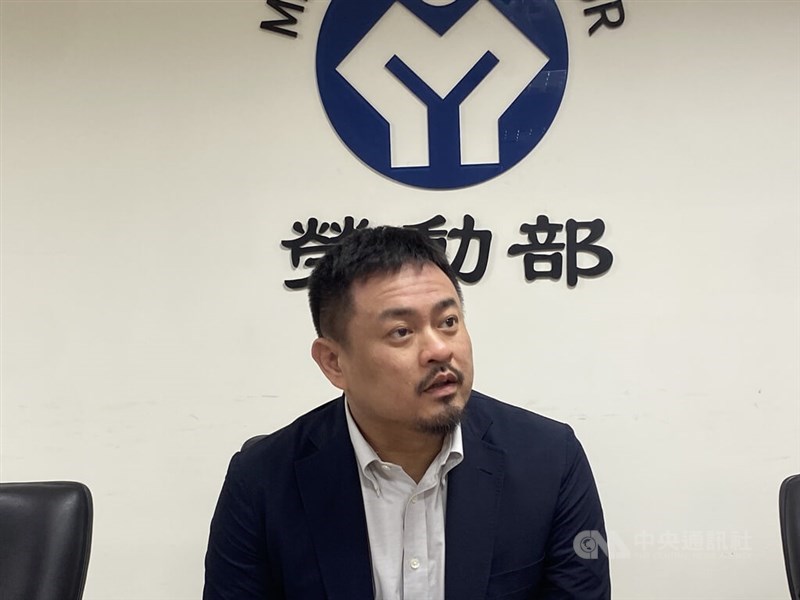
Taipei, Oct. 30 (CNA) The Cabinet's latest policy to allow more migrant workers under certain conditions to address local labor shortages has drawn criticism from labor groups, who questioned whether it will help address the low wages and systemic constraints faced by such workers.
Citing demographic challenges -- a low birth rate, aging population, and skilled labor shortage -- the Cabinet on Thursday approved a series of measures allowing manufacturers to hire additional migrant workers beyond their existing quotas, and permitting the hospitality sector and ports to recruit migrant workers.
● Taiwan to recruit migrant workers for hospitality sector
More migrant hires tied to local pay increases
To hire one additional migrant worker beyond the fixed quota allocated to a business, employers must raise the monthly salary of a local employee by NT$2,000 (US$61.38) and keep the number of such hires under 10 percent of their workforce, according to the plan proposed by the Ministry of Labor (MOL).
Also included is a plan to scrap the rule that currently allows employers to retain up to 25 percent of their migrant workers as "intermediate skilled foreign workers," while keeping in place the cap that limits the total number of foreign workers to no more than 50 percent of a company's workforce.
Taiwan introduced the "Long-term Retention of Skilled Foreign Workers Program" in 2022, under which employers can reclassify migrant workers who have been employed for over six years as "intermediate skilled foreign workers", eligible for a higher minimum salary and a potential path to permanent residency.
Commenting on the plans, Secretary-General of the Taiwan Labor Front Yang Shu-wei (楊書瑋) said the government should assess the actual situation and causes of labor shortages, rather than simply easing restrictions on the hiring of foreign workers.
Labor shortage or cheaper labor?
"Is industry really facing a labor shortage, or is it just because employers are looking for cheaper labor?" Yang said in a telephone interview with CNA.
Given that migrant workers are usually paid the minimum wage of NT$28,590 -- excluding live-in caregivers who are not covered by the Labor Standards Act -- allowing more migrant hires while only raising local workers' pay will result in greater wage disparities for the same work based solely on nationality, Yang said.
Yang further pointed out that Taiwan's migrant workforce has grown rapidly since the COVID-19 pandemic, surpassing 850,000 by the end of September -- an increase of 110,000 from two years ago -- yet the government has not established annual recruitment limits as required under the Employment Service Act.
Separately, Grace Huang (黃姿華), secretary-general of the Taoyuan-based Domestic Caretaker Union, said the Cabinet's plan to lift the 25 percent cap on employers reclassifying migrant workers as "intermediate skilled foreign workers" would not meaningfully benefit them.
"Intermediate skilled" reclassification rate low
According to Ministry of Labor data, 22,283 migrant workers in the manufacturing and construction sectors have been reclassified as "intermediate skilled migrant workers," representing 4.15 percent of migrant workers in those industries, while 33,413 caregivers were reclassified, accounting for 14.88 percent of migrant workers in the nursing sector.
"The proportion of migrant workers reclassified as intermediate skilled is so low because employers remain reluctant to pay higher wages, especially since they can continue hiring migrant workers at lower pay," Huang said.
If industries do not need a higher proportion of "intermediate skilled migrant workers," it is unclear why the government is proposing this policy, she added.
In a media release on Thursday, the Migrants Empowerment Network in Taiwan called the policy of reclassifying workers as "intermediate skilled migrant workers" a "fraud in the name of improving labor conditions" that hides the long-standing low wages and systemic constraints faced by migrant workers.
One of the systemic constraints is that migrant workers cannot freely change employers except under certain circumstances permitted by the Ministry of Labor, which increases their vulnerability to exploitation, Huang said.
She noted that the Cabinet's approval of these measures may have been driven by pressure from industries seeking to hire more migrant workers.
Direct hiring through recruitment centers abroad
In addition, the Executive Yuan has approved plans to establish recruitment centers in migrant workers' home countries, aiming to strengthen the direct hiring of workers through government-to-government agreements.
● Cabinet to promote local pay rises in exchange for more migrant workers
Huang said the policy is likely a response to U.S. criticism over forced labor, citing Giant Manufacturing Co. Ltd., whose Taiwan‑made bicycles and parts were blocked by U.S. customs over forced labor concerns, including excessive brokerage fees charged to migrant workers under the labor brokerage system.
She urged the government to set clear targets for the program rather than treating it as a symbolic announcement.
-
Society
Molly the hamster finds new home after street life ordeal in New Taipei
02/15/2026 06:35 PM -
Business
CPC to freeze fuel prices over Lunar New Year holiday
02/15/2026 05:25 PM -
Politics
Taiwan vice premier returns home after trade agreement signed with U.S.
02/15/2026 04:45 PM -
Society
Kaohsiung zoo's African elephant Ali passes away at age 52
02/15/2026 04:01 PM -
Sports
Figure skater Li makes history for Taiwan at 2026 Olympic Winter Games
02/15/2026 03:52 PM